
October 19
1812 Napoleon begins his retreat from Moscow: Fewer than 20,000 of Napoleon's 500,000-man invasion force eventually stagger back across the Russian frontier. [For further details, Click here.]
1842: A US Naval squadron occupies Monterey, California when their commander acts on mistaken intelligence indicating that a state of war had commenced between the US and Spain. When he is convincingly informed that his information is in error, he salutes by way of apology and withdraws his forces.
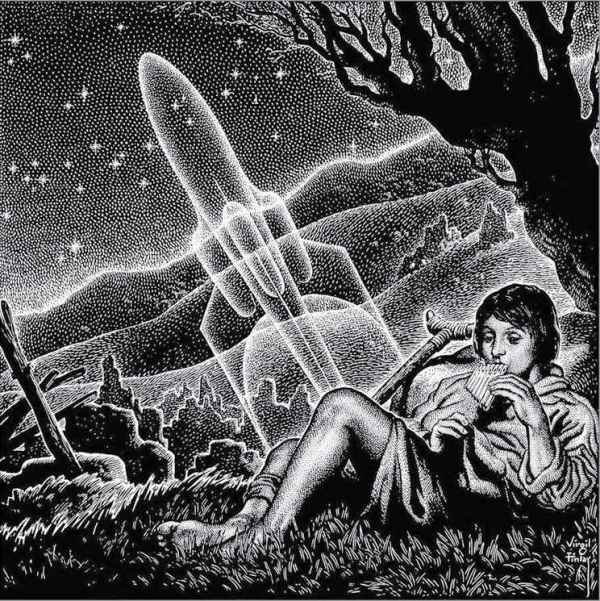
1899: A 17-year-old Robert Goddard, climbing into a cherry tree to prune branches, finds himself daydreaming instead of pruning: "It was one of the quiet, colorful afternoons of sheer beauty which we have in October in New England, and as I looked toward the fields at the east, I imagined how wonderful it would be to make some device which had even the possibility of ascending to Mars, and how it would look on a small scale, if sent up from the meadow at my feet." For the rest of his life Goddard will observe this day as "Anniversary Day." (Goddard)
1914 World War I - Various:
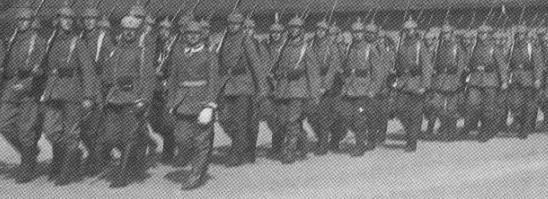
List Regiment (Oct 11 - 20): Infantry Recruit Adolf Hitler's 1st Company, 16th Bavarian Reserve Infantry, train at Lechfeld, at the confluence of the Lech and the Danube, seventy miles west of Munich. [For further details, Click here.]
First Battle of Ypres:On October 19, 1914, near the Belgian city of Ypres, Allied and German forces begin the first of what would be three battles to control the city and its advantageous positions on the north coast of Belgium during the First World War.
After the German advance through Belgium and eastern France was curtailed by a decisive Allied victory in the Battle of the Marne in late September 1914, the so-called "Race to the Sea" began, as each army attempted to outflank the other on their way northwards, hastily constructing trench fortifications as they went. The race ended in mid-October at Ypres, the ancient Flemish city with its fortifications guarding the ports of the English Channel and access to the North Sea beyond.
After the Germans captured the Belgian city of Antwerp early in October, Antwerp’s remaining Belgian forces along with troops of the British Expeditionary Force (BEF), commanded by Sir John French, withdrew to Ypres, arriving at the city between October 8 and 19 to reinforce the Belgian and French defenses there. Meanwhile, the Germans prepared to launch the first phase of an offensive aimed at breaking the Allied lines and capturing Ypres and other channel ports, thus controlling the outlets to the North Sea.
On October 19, a protracted period of fierce combat began, as the Germans opened their Flanders offensive and the Allies steadfastly resisted, while seeking their own chances to go on the attack wherever possible. Fighting continued, with heavy losses on both sides, until November 22, when the arrival of winter weather forced the battle to a halt. The area between the positions established by both sides during this period—from Ypres on the British side to Menin and Roulers on the German side—became known as the Ypres Salient, a region that over the course of the next several years would see some of the war's bitterest and most brutal struggles. (History.com)
1915 World War I (Oct 4, 1915 - Feb 29, 1916):

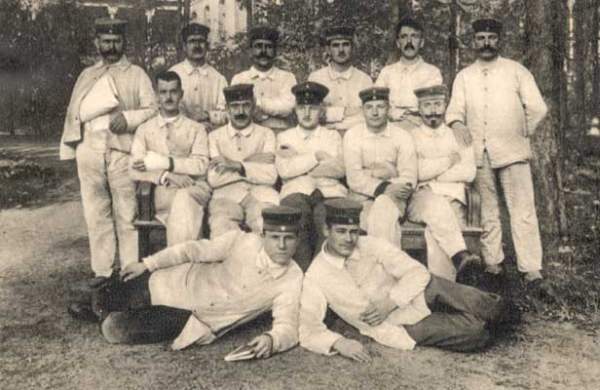
Hitler, who had been fighting almost continuously for two years, finds himself on a hospital train headed for a Red Cross hospital in Beelitz, near Berlin. While his wound is serious, he will recover quickly, and will later write Balthaser Brandmayer: "Am suffering from hunger-induced typhus because I cannot eat bread; additionally I am adamantly denied any sort of jam." [For further details, Click here.]
1917 Russian Revolution: Appeal for Revolt Issued by Lenin:
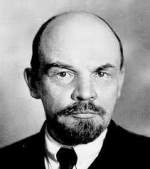
Facts prove to us most plainly that after the July days the majority of the population began rapidly to join the ranks of the Bolshevists. This is proved by the elections at Petrograd on September 2nd, before the Kornilov affair, when the Bolshevist votes rose from 20 per cent to 33 percent, as also by the September elections of the district Dumas in Moscow, when the percentage of Bolshevist votes rose from 11 per cent to 49 per cent. This was also proved by the fact that the bulk of the Peasants' Soviets, contrary to the advice of their "Avksentieff's" Central Soviet, declared against a coalition; for to be against a coalition is, in reality, to go with the Bolshevists. Further, communications from the front with increasing frequency and definiteness show that the mass of the soldiery, in spite of malicious libels and attacks by the leaders of the Menshevists, the officers, deputies, etc., etc., more and more decisively came over to the side of the Bolshevists. [For further details, Click here.]
1917 List Regiment (October 17-29):
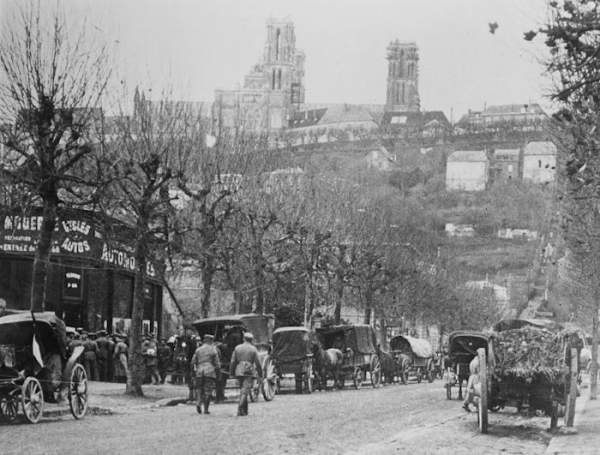
Dispatch Runner Gefreiter Adolf Hitler rejoins his old regiment, now holding down a series of trenches in front of Laon near the Chemin des Dames. While there is "no danger of being taken by surprise, for the canal lay as a natural obstacle between the lines of trenches". But it is still necessary to "build a robust line [since] the highly desired town of Laon lay to our rear . . . . In the first few weeks, we often suffered strong enemy fire. This eased significantly however, in weight as in violence, in December so that one may speak of enjoying Christmas in a quiet sector. [For further details, Click here.]
1918 World War I (Oct 15 - Nov 10):
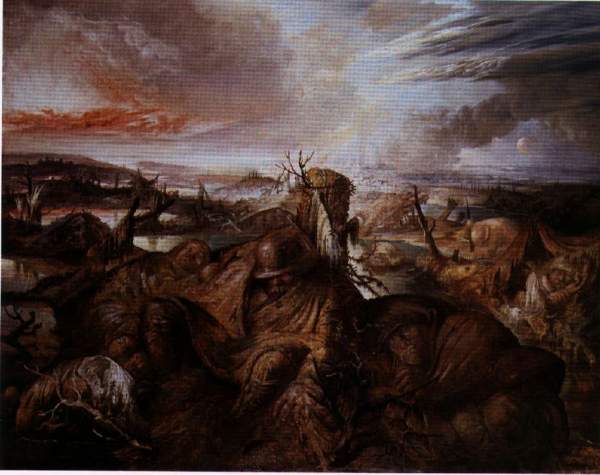
Gefreiter Adolf Hitler, blinded in a gas attack near Werwick on Oct 14, recovers in the Prussian Reserve Hospital at Pasewalk near Berlin. The doctors at this army hospital, on the cutting edge of medical treatments for gassed soldiers, provide Hitler with very good care, and his sight slowly and painfully begins to return to him over these few weeks. Hitler falls into a deep depression. After over four years on the front lines, his fighting days are over. In four years of war, the List Regiment has lost 3,754 dead, 8,795 wounded, with 678 taken prisoner. This is somewhat above the average for the German Armed Forces as a whole. [For further details, Click here.]
1935 Various:

Ethiopia stands alone:
The League of Nations votes to impose deliberately ineffectual economic sanctions against Fascist Italy for its invasion of Ethiopia. Steps that would impede the progress of the invasion, such as banning the sale of oil to Italy and closing the Suez Canal, were not taken, out of fear of igniting hostilities in Europe.
In the first loss of Ethiopian independence in its long history, tens of thousands of Ethiopians were killed as the Italian army employed poison gas and other modern atrocities to suppress the country. By the end of 1936, the Italian conquest of Ethiopia was complete. Ethiopia's leader, Emperor Haile Selassie, went into exile but returned in 1941, when British and Ethiopian troops liberated the country. Ignoring the British occupation authorities, Selassie quickly organized his own government. (History.com)
Volkishness: The Institute for the History of the New Germany opens.
1939 World War II: Various:
From a speech by Hermann Goering:
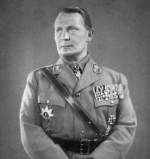
In the first mentioned territories the reconstruction and expansion of the economy, the safeguarding of all their production facilities and supplies must be aimed at, as well as a complete incorporation into the Greater German economic system at the earliest possible time. On the other hand there must be removed from the territories of the Government General all raw materials, scrap materials, machines, etcetera, which are of use for the German war economy. Enterprises which are not absolutely necessary for the meager maintenance of the bare existence of the population must be transferred to Germany, unless such transfer would require an unreasonably long period of time and would make it more practical to exploit those enterprises by giving them German orders to be executed at their present location.
German Ambassador in the Soviet Union (Schulenburg) to German Foreign Office:
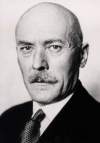
Molotov today informed me that Stalin approved the account of the negotiations in Moscow that the Reich Foreign Minister contemplates making in his forthcoming speech. He only asked that instead of the sentences quoted as the statement of Stalin: "Germany was taking a proud attitude . . . " up to " . . . getting into a difficult position," the following version be adopted: "The attitude of Germany in declining military aid commands respect. However, a strong Germany is the absolute prerequisite for peace in Europe, whence it follows that the Soviet Union is interested in the existence of a strong Germany. Therefore the Soviet Union cannot give its approval to the Western powers creating conditions which would weaken Germany and place her in a difficult position. Therein lies the community of interests between Germany and the Soviet Union.
Hitler incorporates western Poland into the German Reich.
The Kristallnacht 'Atonement fee' for Jews is increased to 1.25 billion RM and has to be paid by November 15, 1939. (THP)
1941 World War II:

Stalin announces that he will remain in Moscow, even though most of the Soviet government has already fled, promising to defend the Russian capital with every possible effort.
1942 World War II: From a report by Professor Paul Thomsen:
I consider it is my duty, although I am only here in the East on a specific scientific mission, to add a general political outline to my actual reports. I must admit, openly and in all honesty, that I return home with the most grievous impressions. In this fateful hour of our nation every mistake we make may result in the most disastrous consequences. A Polish or a Czech problem can be crushed because the biological forces of our people are sufficient for that purpose. Remnants of people like Estonians, Lithuanians, and Letts have to adapt themselves to us or they will perish. Things are quite different in the immense Russian area, of vital necessity to us as a basis for raw materials . . . . I do not dare to voice an opinion on the economic measures, such as, for instance, the abolition of the free market in Kiev, which has been taken as a heavy blow by the population, since I am in no position to observe the entire situation. The 'sergeant major attitude,' the beatings and shouting in the streets, the senseless destruction of scientific institutions which is still going on as strong as ever in Dniepropetrovsk, should cease immediately and be punished severely.-Kiev, 19 October 1942; Professor Dr. Paul W. Thomsen.
1943 World War II: Various:
Italy: the offensive by American forces along the Volturno river bogs down due to bad weather and in the face of the skillful German defenses.
[See: How Did the Pact of Steel Effect Germany and Italy?]War at Sea: Allied aircraft sink the cargo ship Sinfra, killing over 2,000 people, mostly Italian POWs. [For further information, click here.]
Holocaust:

Lublin SS-und Polizeifuehrer Odilo Globocnik announces the end of Aktion Reinhard and dissolution of the camps. Most SS personnel involved in Aktion Reinhard are transferred to the Adriatic coastal operation zone to fight the partisans and select and deport the Jews of that area. (THP)
Chinese and Suluks revolt against Japanese in North Borneo:
On this day in 1943, local Chinese and native Suluks rise up against the Japanese occupation of North Borneo. The revolt, staged in the capital, Jesselton, resulted in the deaths of 40 Japanese soldiers.
The Japanese had begun scooping up islands in the Dutch East Indies in late 1941. Kuching, on the northern coast of Borneo, was taken in December; January of '42 saw the fall of Brunei Bay and Jesselton, also in North Borneo. The British and Dutch forces on the islands were dealt swift and severe blows. Attempts by the Allies to hold on to other islands in the region-Malaya, Sumatra, and Java-began shortly thereafter, with British General Archibald Wavell commanding a unified force of British, Dutch, and Australian soldiers. It was a disastrous failure.
The treatment of Allied and civilian prisoners in the Japanese-controlled islands was horrendous, with hundreds dying of disease and starvation. The rebellion of Chinese settlers and native Suluks in the Borneo capital of Jesselton, although delivering a blow to the Japanese to the tune of 40 dead occupying soldiers, was dealt with quickly and brutally. The Japanese destroyed dozens of Suluk villages, rounded up and tortured thousands of civilians, and executed almost 200 without trial. In one extreme example of cruelty, several dozen Suluk women and children had their hands tied behind them and were hanged from their wrists from a pillar of a mosque. They were then shot down by machine-gun fire.
North Borneo would not be liberated until 1945, mostly the work of Australian forces. The next year, it would be made a colony of Britain. That region of Borneo controlled by the Dutch was given sovereignty in 1949 after a rebellion by Indonesian forces. (History.com)
1944 World War II: Various:
East Prussia: the Red Army forces the withdrawal of the German 4th Armee (Hossbach) from the Tilsit area.
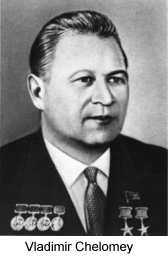
Stalin appoints Chelomei (Vladimir Chelomey) chief designer of a reverse-engineered V-1 rocket program. (Harford)
[See: Wunderwaffen: Hitler's Deception and the History of Rocketry.]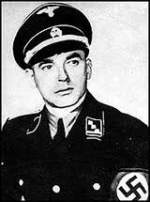
Alfred Naujocks deserts to the Americans and at Nuremberg the following year gives a number of sworn affidavits. In one he gives his account of the "faked incident" at Gleiwitz on the evening of August 31, 1939, which Hitler had used to justify his attack on Poland. (THP) (See November 20, 1945)
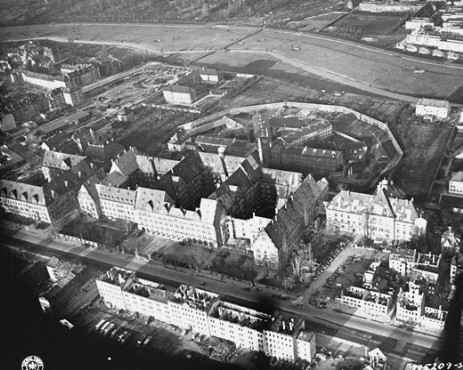
1945 Nuremberg Tribunal: Indictments are issued against the major criminals. (Maser II)
1950 Korean War: United Nations forces enter the North Korean capital of Pyongyang.
1958 The first Cold War world's fair closes: In Brussels, Belgium, the first world's fair held since before World War II closes its doors, after nearly 42 million people have visited the various exhibits. Officially called the Brussels Universal and International Exhibition, the fair's overall theme was "A World View, A New Humanism." As such, the fair was supposed to celebrate the universality of the human condition and encourage dialogue and peaceful relations among the nations of a world only recently torn asunder by war, and now caught in the clutches of the Cold War. [For further details, Click here]
Edited by Levi Bookin (Copy editor)
levi.bookin@gmail.com



Click to join 3rdReichStudies



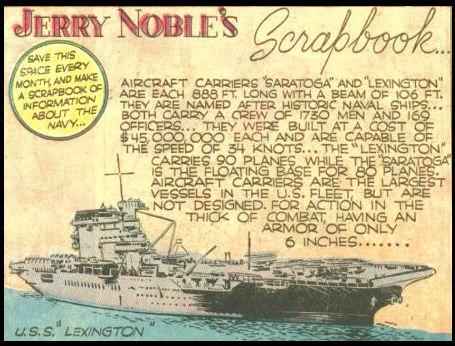
Disclaimer: This site includes diverse and controversial materials--such as excerpts from the writings of racists and anti-Semites--so that its readers can learn the nature and extent of hate and anti-Semitic discourse. It is our sincere belief that only the informed citizen can prevail over the ignorance of Racialist "thought." Far from approving these writings, this site condemns racism in all of its forms and manifestations.
Fair Use Notice: This site may contain copyrighted material the use of which has not always been specifically authorized by the copyright owner. We are making such material available in our efforts to advance understanding of historical, political, human rights, economic, democracy, scientific, environmental, and social justice issues, etc. We believe this constitutes a "fair use" of any such copyrighted material as provided for in section 107 of the US Copyright Law. In accordance with Title 17 U.S.C. Section 107, the material on this site is distributed without profit to those who have expressed a prior interest in receiving the included information for research and educational purposes. If you wish to use copyrighted material from this site for purposes of your own that go beyond 'fair use', you must obtain permission from the copyright owner.
Please Note: The list-owner and the moderator of 3rdReichStudies are not responsible for, and do not necessarily approve of, the random ads placed on our pages by our web server. They are the unfortunate price one pays for a 'free' website.